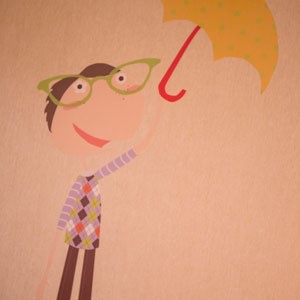Pediatric Sleep Disorders

Optimal amounts of sleep is vital to a child's health, happiness, social life and success in school. Constant and regular disruption in your child's sleep pattern may disrupt the quality of a child's life.
The Pediatric Sleep Institute, a department of Texas Health Center for Diagnostics & Surgery, provides the necessary information for your physician to detect and diagnose your child's sleep disorder. A sleep evaluation can help your physician decide on a successful treatment plan that will benefit both you and your child. Sleep routines and treatments should be age appropriate in order to best meet the needs of the individual and to minimize the effects of sleep disorders.
Common Childhood Sleep Disorders
Insomnia
The patient is unable to fall asleep and/or remain asleep for a reasonable amount of time.
Parasomnias
The patient experiences sleep walking, teeth grinding and night terrors. These symptoms are mostly an indication of inadequate or suboptimal sleep or may be associated with stress and depression.
Narcolepsy
A chronic neurological condition caused by the brain's inability to regulate the sleep-wake cycle normally. Narcoleptics have uncontrollable urges to sleep at inappropriate times during the day. They may also experience muscle weakness after laughing or crying outbursts.
Sleep Apnea
The patient experiences the obstruction of the airway passage during sleep. This often results in pauses in breathing.
Periodic Leg Movements Syndrome (PLMS)
The patient experiences sudden jerking or bending of the arms and legs during sleep. These symptoms can range from small shudders of the ankles and toes to leg kicks and flailing of arms and legs. These periodic movements often wake the sufferer, significantly disturbing the continuity and quality of the child's sleep.
When to Consider a Sleep Evaluation
If your child:
- Snores
- Makes other noises during sleep
- Is sleepier than expected during the daytime
- Has trouble falling asleep
- Has trouble staying asleep
- Has difficulty waking up in the morning despite sleeping adequate number of hours
- Wets the bed (past the age of 5 years)
- Has trouble falling asleep due to leg discomfort
- Sleepwalks excessively
- Has frequent sleep terrors
- Exhibits sudden behavioral problems at school or at home
- Shows signs of memory dysfunction or a lack of concentration
- Grinds teeth during sleep
- Moves excessively during sleep
- Has a craniofacial abnormality that may contribute to difficulty breathing during sleep
A child suffering from a sleep disorder may exhibit one or more of these symptoms. You should seek the advice of a trusted physician. If your child's primary physician recommends that your child be evaluated at the Pediatric Sleep Institute, a sleep specialist will be available for consultation. This is helpful for parents who are unsure whether their child's sleep patterns and habits are within normal range.
Studies have shown that sleep disturbance can be the cause of the above symptoms. Surprisingly, even simple snoring has been shown to decrease a child's performance and attentiveness at school. Not all children require a sleep study for treatment and not all treatments require medication. Even if you suspect that the problem is behavioral, you should speak with your child's physician to ensure proper evaluation.
Sleep Evaluations
At Pediatric Sleep Institute, the sleep technicians are trained to help children feel safe and secure. A technician will help your child prepare for the evaluation and will be available during the sleep period to monitor and make adjustments. The technician can also answer any questions the child or the parent/caregiver may have.
During the sleep evaluation, the technician will monitor your child's sleeping and waking patterns, breathing patterns, body movements and brain waves. This information will be interpreted by a board certified pediatric sleep physician then conveyed to your primary physician who will then recommend a course of treatment.
Types of Tests and Therapies
Your pediatrician may recommend one or more of these tests:
Polysomnogram
This test is painless and non-invasive. It is designed to monitor your child's sleeping cycle from brainwaves, breathing pattern, blood oxygen via pulse oxymetry, heart activity and body movements during an all night sleep period. The recorded patterns are then studied by a board certified pediatric sleep physician to accurately diagnose the different types of sleep disorders.
CPAP/BIPAP Therapy (Continuous Positive Air Pressure & Bi-Level Positive Airway Pressure)
This test is often requested after a patient has been diagnosed with sleep apnea. A mask is placed over the nose and/or face which helps prevent snoring and apnea (interrupted breathing) during the normal sleep period. Different levels of air pressure are gradually delivered to ensure airway patency and uninterrupted breathing during sleep. This helps in maintaining a normal and continuous sleep. This test is used to determine the correct air pressure needed to keep the airways open. Consistent use of the CPAP or BiPAP machine is critical in the successful treatment of sleep apnea and thus practice with the mask may be necessary prior to coming into the sleep clinic for this study.
MSLT (Multiple Sleep Latency Test)
This assessment is usually performed the day after the polysomnogram is administered. It is also useful in studying the severity of daytime sleepiness and determines if narcolepsy is present.
Has your child been prescriped a sleep evaluation? Get preparation instructions.
